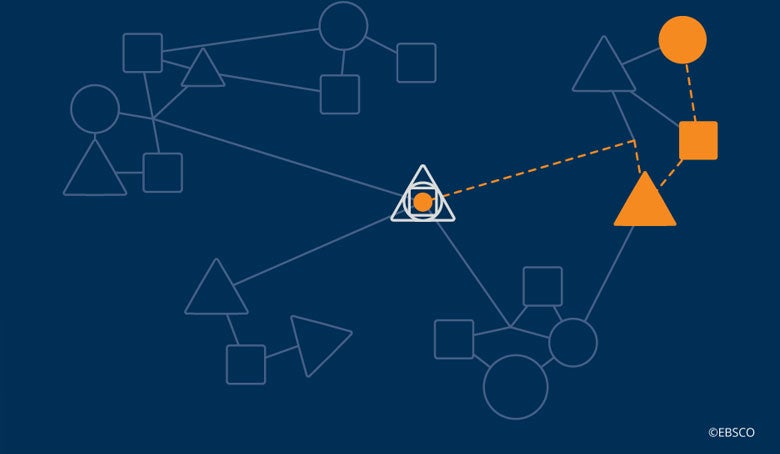Ashleigh Faith, MLIS, PhD and Director of Content Enrichment & Data Visualization at EBSCO Information Services, explores the development of discovery services.
When was the last time you had to do a search, but didn’t know the right word to use? Often users just type whatever they can manage and hope for the best. The good news is that, in a world of advanced semantics and knowledge sharing, “the best” results that users can hope for are pretty sophisticated. What traditional search engines do well is boil the ocean so the most general queries give “good enough” surface level results. What they don’t do, because it’s not their focus, is give a specific user, looking for specific research, a way to find academic content. Enter the dedicated research search engines know as discovery services.
EBSCO has been working on meeting the needs of all users, no matter who they are, where they are from, or which language they speak.
EBSCO has been working on meeting the needs of all users, no matter who they are, where they are from, or which language they speak.
Before search engines were around, users heavily depended on subject indexing to help them find the resources they were looking for via the physical information in card catalogs or The Readers’ Guide to Periodical Literature. Resources were primarily print-based and therefore could only live in one location within the stacks. This physicality made the indexing of resources fairly straightforward — index the resource with the same or related topics. When a patron browsed the stacks, they could easily find similar resources to check out through serendipitous search or leverage abstracts and indexing to call up the journal issue by request using The Readers’ Guide.
Now let’s fast-forward to the present where a resource is digital and therefore fluid in its “location” and relationships to other resources. We are no longer limited by physical space so resources can be associated in more dynamic and specific ways. Now the question is, have discovery search engines evolved to accommodate for this reality? Most have not.
Search engines for academic resource discovery have long depended on traditional hierarchical relationships, which leveraged subject headings. Now, the way the user constructs the words and methods they use to do their research — research methods further impacted by the users’ background and language — are informing the development of discovery services. EBSCO has been working on meeting the needs of all users, no matter who they are, where they are from, or which language they speak. This is called equitable search. This work has recently been added to the search technology in EBSCO Discovery Service™ (EDS) in three steps:
- Synonyms and controlled subjects were mapped together
- Users' natural language was mapped to each subject grouping, this includes more than 200 languages and dialects
- Subjects were then mapped to each other with explicate relationships, such as “type of” and “symptom of”
The result is a search experience that accommodates user’s natural language, which can be queried using very specific relationship types. This saves time for the researcher and allows institutions using EDS to serve the needs of all users.
